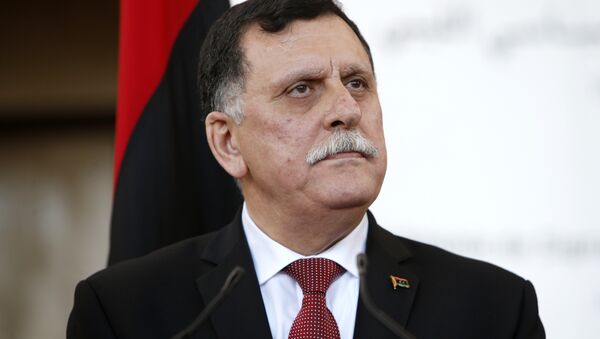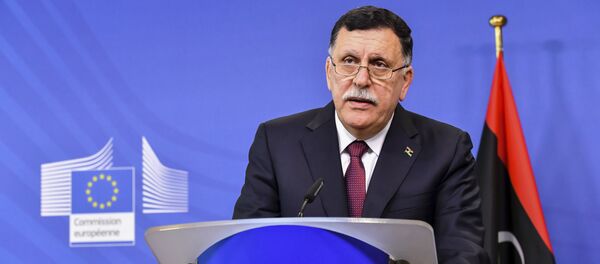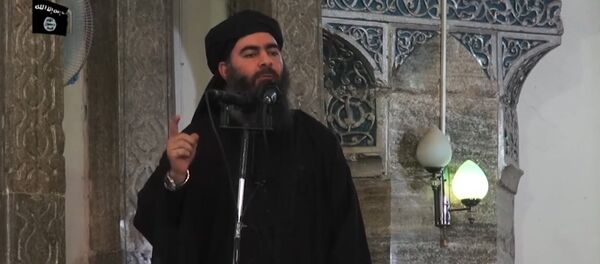TRIPOLI (Sputnik) — Statements by representatives of the Libyan National Army (LNA), which controls the east of the country, about the forthcoming "liberation of Tripoli" are unacceptable, Sarraj told Sputnik.
"Firstly, Tripoli is not occupied for someone to liberate it. It is necessary to refrain from provocative statements in the media, so as not to complicate the problems. Taking advantage of our meeting today, I urge all parties to refrain from expressions such as the 'liberation of Tripoli,'" Sarraj said.
On July 4, the spokesman of the Libyan National Army (LNA) announced the intention of the military "to enter Tripoli without an armed confrontation, with the help of its citizens."
"We call for dialogue, to get together and solve our problems. If this does not happen, the problem will become more complicated, a civil war will be the replacement, and all Libyans will pay the price," Sarraj said.
"There were no agreements there … Many opinions were discussed, we listened to those of Mr Khalifa, but we did not reach the agreements you mentioned," Sarraj said.
Sarraj pointed out that the Libyan army should be under the control of a civilian executive power.
"We have stated that any military organization should be under the control of civilian executive power. It is the basic principle when building a military organization," Sarraj said, answering a question about the main disagreement with eastern Libya's Libyan National Army Commander Khalifa Haftar.
He went on by stating it is too early to speak of involvement of Saif Islam Gaddafi, son of late Libyan leader Muammar Gaddafi, in the country’s political process.
"At present, he has been charged with several judicial charges here [in Libya], he is wanted by the International Criminal Court. I believe speaking of him is premature," Sarraj added.
"The actions of foreign states, their negative interference into Libyan affairs, hampered the political process," he said.
Daesh terrorist group (banned in Russia) lost control over territories in Libya after its defeat near Sirte, only some hotbeds in the desert remain under its control, Sarraj said.
"The IS [Daesh] group does not exist in the same way as it was in Sirte. They lost control over territories. After their defeat in Sirte, only individual hotbeds remain in the desert. In recent months, efforts have been made to destroy them, with the air force carrying out airstrikes against them," Sarraj said.







